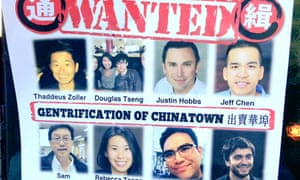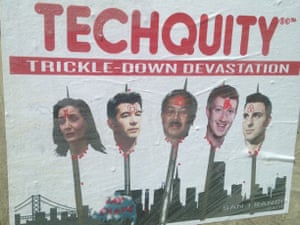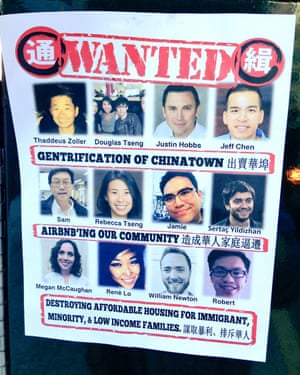Audio Transcript
Brian Anderson: Affordable housing policies become a divisive issue in New York's Westchester County, just as it has in other municipalities across the country. The Federal Department of Housing and Urban Development has pushed Westchester to finance hundreds of subsidized housing units and market them to poor minorities. While the goal of deconcentrating poverty has merit, is the way the Feds are going about it going to do more harm than good? Joining me to discuss what's going on in Westchester and how it could affect other communities is Howard Husock, Vice President for Research and Publications at the Manhattan Institute and a contributing editor of
City Journal. His article from
City Journal Spring issue is entitled "
Unfair 'Fair Housing.'" Howard, thank you for joining.
Howard Husock: Good to be with you, Brian.
Brian Anderson: Your piece opens up in Chappaqua, the wealthy Westchester town where Bill and Hillary Clinton have a home. Describe for listeners exactly what's happening there with regard to this affordable housing policy battle.
Howard Husock: Chappaqua is a village in the County of Westchester, which is a relatively affluent, but not uniformly affluent, county in New York State, just north of New York City. And the Department of Housing and Urban Development is pushing, as you put it, Westchester, because of a lawsuit, to locate subsidized housing, low-income housing, in affluent parts of the county. And you don't get a lot more affluent than Chappaqua. It's leafy, it's tony, its semi-rural. And the idea that HUD has is that these sorts of places would be good homes for poorer people who would benefit from the good schools and good public facilities in a place like Chappaqua. And Chappaqua is just one front, a front line of this happening all over Westchester County, and the idea is to build a complex near the train station there that would include some low-income housing. HUD's idea is this ought to be a norm across the country. As HUD would put it, that no child should have his fate decided by virtue of the zip code in which he lives, so it's a small example of a larger philosophical movement, if you will.
Brian Anderson: And behind that philosophical movement is this idea of deconcentrating poverty. What's your view of that and perhaps you could explain a little bit what that means.
Howard Husock: Deconcentrating poverty, I think, is an idea that has sprung up from the failure of public housing, and the idea that public housing failed because it was a concentration of poverty where all sorts of bad things happened and couldn't be controlled. And so if the poor were dispersed among better off people who would be role models and would allow the poor to benefit from better schools and public accommodations, parks, recreation programs, that this deconcentration would benefit both the wealthy and the poor, I guess you would say. It's an extraordinary change, however, from the original mission—and one has to wonder whether the officials at HUD in Washington even take this on board—it's an extraordinary change from the original mission of HUD, which was to improve urban neighborhoods. In effect HUD is now giving up on the idea that poor neighborhoods can be good neighborhoods and we have to spread out the poor, and by this they certainly largely mean the minority poor, because that's to whom there's going to be a special outreach, at least in Westchester County, rather than taking the steps necessary to make sure that poor neighborhoods can be okay places to live. So this deconcentration movement is a big change and should be appreciated as such.
Brian Anderson: How much of this, though, is also about the fact that places like Chappaqua don't have large minority populations? In other words, is part of the policy aimed at making these tony suburbs more diverse?
Howard Husock: I think there's no doubt that there's a sense that there's something unjust about what you might call the American de facto system of housing, that there are poor neighborhoods, rich neighborhoods, and neighborhoods in between, but there are certainly enclaves of the quite wealthy where there are very low numbers of minorities, although in Westchester County the numbers of minorities in some of the most famous, wealthy places there—Chappaqua, Scarsdale—are in proportion to the number of very well-off minorities, there just aren't that many well-off minorities. In other words, there's not really evidence that if a black potential homebuyer wants to buy in Chappaqua that he or she could expect to be turned away on the basis of race. In fact there's no expectation of that. But, there is something about that picture that rubs HUD, I think, and the Obama administration, the wrong way.
Brian Anderson: How have the black residents of towns in Westchester, like Chappaqua, the ones already living there, reacted to the idea that there will be these subsidized units being constructed?
Howard Husock: Well, I think, Brian, we have to put that in the content of how one becomes upwardly mobile in America. And I like to think of housing as a kind of a ladder of neighborhoods and one goes from poorer, to better off, to slightly even better off, and maybe beyond that by making a series of good life decisions. That could include being employed, it could include being married, it could include saving one's money and deferring certain gratifications. And anybody, black or white, who makes the effort and takes the steps necessary to buy a home, to save the money and make the life decisions necessary to buy that home, is quite protective of what one has achieved, and proud of it. And so when this Westchester decision was originally reported on by The New York Times, there was a flood of postings by African-American, self-identified African-American residents in the county, I should say, from—not from Chappaqua itself, but from some other places, who said, well, wait a minute. I did what I had to do to get here and now others are going to be, in effect, given the same thing that I had to work very hard to achieve for myself. And so what they are saying is their achievement is, in effect, being devalued by the government. And I think they are quite concerned, especially minority residents, that there will be a potential for tension amongst residents because classically, in the sociological literature, Americans get along on the basis of their economic and educational commonalities. If you have minority residents who share educational backgrounds and socioeconomic status with their neighbors, the chances of everybody getting along well are quite high. If you introduce much poorer residents, there's the chance for tension, and I think that's what those minority residents are quite concerned about.
Brian Anderson: You say in the piece that you'd like to see policymakers encourage upward mobility rather than trying to deconcentrate poverty by forcing people to live in certain neighborhoods. What do you mean by that and how should policymakers go about improving chances for mobility?
Howard Husock: Well, I think we have to circle back to at least the goal, perhaps not some of the means that were chosen historically that HUD originally had and, repeating myself, to make poor neighborhoods good neighborhoods. But what do I meant by that? That means that, first of all, you need public safety in poor neighborhoods, so that those who work hard, play by the rules, save money, don't have to worry about robbery and home invasions and the other things that in addition to terrorizing people deplete their wealth, makes it harder for them to get ahead. We are also saying that there are ways to improve public education which has to be at the bedrock of marking poor neighborhoods good neighborhoods and encouraging upward mobility. And we're seeing charter schools and poor neighborhoods can work very well. It's a sort of divisiveness in policy circles right now, which is quite unfortunate. It doesn't have to be only charter schools. We need schools that work well and we need good—public good, as the economists say. That means the parks have to be good, the streets have to be clean. Just because you have a low-income neighborhood doesn't mean it has to be a bad neighborhood. It can be the launching point for upward mobility. And let me just speak for a moment about what's practical. Right now we spend about $19 billion dollars on housing vouchers that allow low-income residents, like those who would be moving into these subsidized units in Westchester, in all likelihood, 2.4 million, roughly, households get these vouchers. Well, there's about 45 million Americans living in poverty. We can't, as a practical matter, conceive of giving all those people housing vouchers. In fact there's a new book calledEviction, which urges that as a policy. It seems impractical in our current fiscal climate in Washington, and I think ill advised as well, for some of the reasons that I've been mentioning. But therefore, if our goal is to help as many of the poor advance as possible, we have to return to the idea of giving people the ways, means, incentives to advance on their own.
Brian Anderson: The final question. Here we are at the end of the Obama years, and this is related to what you just said, I think. What is the current state of public housing and the public housing debate in America?
Howard Husock: Well, public housing—people think of public housing as physical public housing projects. They've not been growing. In fact their ranks have been diminished by being torn down. And housing vouchers have been increasing in number.
Brian Anderson: And the housing vouchers are now a great portion of public housing? Or...
Howard Husock: Yes. There are more receiving housing vouchers. In fact we spend more on housing vouchers than we spend on traditional cash public assistance. It's become a really large safety net program, if you will. The public housing, itself—physical public housing continues to be in declining physical condition. So, for instance, here in New York there are 178,000 public housing units and an estimated $18 billion dollars in capital repairs that need to be done. In fact, the U.S. Attorney's office is on the verge of suing the city because of the poor conditions of public housing. These are tremendous ironies, just tremendous ironies. Public housing was meant to replace slums, and it's become our most persistent slum. That said, in terms of your question, I think there's very little focus on this. And we see long-term poverty among single parents and their children concentrated in public housing. Median stay in New York public housing is almost 17 years. Median housing voucher stay is almost nine years. So we see long-term poverty being supported, in effect, by the Public Housing and Housing Subsidy Program. And you know, frankly, if you're on a housing subsidy, it doesn't even pay you to earn more. You pay 30% of your income in rent and the more your income goes up the more rent you pay. So we've got a dependency trap going, and I wish there were more attention being paid to it.
Brian Anderson: If you enjoyed today's discussion, check out Howard Husock's latest essay,
"Unfair 'Fair Housing.'" It's on our website,
www.City-Journal.org, and it's in our latest issue. Additionally, we'd love to hear your thoughts on today's episode. Tweet your comments and questions to
@CityJournal with the hashtag
#10Blocks. You can also make suggestions for other
City Journal editors and other topics you'd like to hear from in future podcasts. Thanks for listening and thanks, Howard, for joining us.
Howard Husock: Thank you, Brian.







